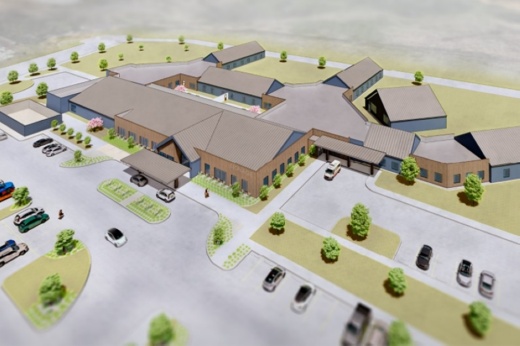The proposed 65,000-square-foot hospital would feature 88 beds, an outdoor healing garden and courtyard space for physical activity to help provide inpatient and outpatient services for adolescents and adults for a wide range of conditions, including depression, anxiety and bipolar disorders.
Brandy Hart, HCA Healthcare regional vice president for behavioral health services, said plans started for this facility in early 2021.
“Tarrant County is under-bedded from a behavioral hospital standpoint,” she said. “We knew with the population growth expected in the next two to five years ... there would be an increased need and an increased presence of mental health concerns. It is critically important as a community provider to meet the growing needs of not only inpatient [clients] in crisis but outpatient.”
The proposed hospital will provide 24 beds for adolescents, 48 for adults and 16 for senior adults.
Once permitted by the city of Fort Worth, the hospital will be built on the northern edge of the Medical City Alliance campus.
The anticipated groundbreaking will be this spring, and the hospital is scheduled to open in spring 2024, Hart said. The hospital has mental health locations in Dallas and McKinney.
“We are pleased to extend vital mental health and wellness services to this growing area of north Tarrant County, backed by the expertise and resources of the Medical City Healthcare system,” Medical City Alliance CEO Glenn Wallace said in a press release. “This stand-alone mental health and wellness hospital is another reason our community turns to us as the destination of choice for all of their health care needs.”
The new hospital is part of a $1.1 billion capital improvement in the Medical City Healthcare system.
“There is still a stigma with mental health,” Hart said. “Many individuals seek services once they get into a crisis and find themselves in the emergency department, because they don’t know where else to go. Having a facility as this will be able to service individuals and be a point of access.”






